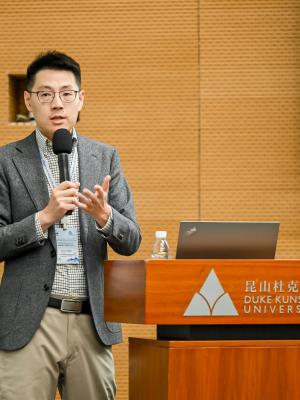Fan Liang
His research and teaching explore how new communication technologies construct social and political changes, and how social and political powers shape and regulate the design and operation of such technologies. His work primarily falls into three overarching areas: regulation, platforms, and information. Using a mixed-methods approach, his ongoing research has three focal areas: 1) the integration of algorithmic decision-making into politics and social life, 2) the governance of AI and digital platforms, and 3) computational social science.
His research received recognition and support from the British Foreign, Commonwealth, and Development Office, the American Council of Learned Societies (ACLS), the Center for the Study of Contemporary China, the International Communication Association, and other institutions. His studies have appeared in Policy & Internet, The International Journal of Press/Politics, Social Media + Society, Information, Communication & Society, New Media & Society, Journal of Communication, International Journal of Communication, among other peer-reviewed journals.
Liang has a B.A. in public administration from Shanghai Jiao Tong University, and an M.Sc. in political communication from the University of Glasgow, where he was a Chevening Scholar. He holds a Ph.D. in communication and media from the University of Michigan. Before entering academia, he was a journalist in Chengdu, China. Further details can be found on his personal website: https://fan-liang.com.

